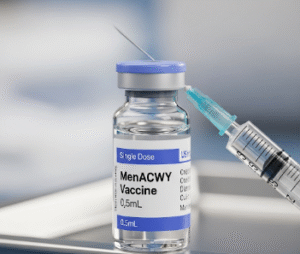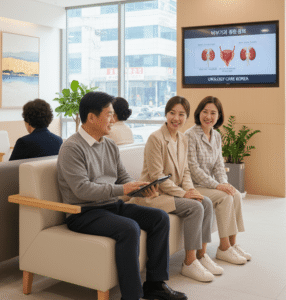Chronic diseases such as diabetes, cardiovascular illness, respiratory disorders, and metabolic syndromes are among the most significant global health challenges. South Korea’s medical community has taken a leading role in researching these conditions and developing solutions that influence healthcare policies and treatment worldwide. Korean doctors are combining technology, epidemiology, and clinical excellence to reshape how chronic diseases are understood and managed.
Korea’s Commitment to Chronic Disease Research
In Korea, chronic diseases account for more than 80% of total deaths and remain the main driver of national healthcare spending. Recognizing this, the government and major universities have made chronic disease research a top priority. The Korean Disease Control and Prevention Agency (KDCA) funds extensive programs aimed at prevention, early detection, and management.
The country’s advanced healthcare infrastructure, unified health insurance system, and digitized medical records make it possible to conduct large-scale, long-term cohort studies. These data-driven efforts allow Korean researchers to examine genetic, lifestyle, and environmental factors affecting chronic illnesses and share insights with global collaborators.
Notable Doctors and Their Contributions
➤ Professor Koh Gou Young – Vascular Biology and Metabolic Research
Director of the Institute for Basic Science’s Center for Vascular Research, Professor Koh Gou Young is one of Korea’s most internationally recognized physician-scientists. His groundbreaking studies on angiogenesis (formation of new blood vessels) and lymphangiogenesis (formation of lymphatic vessels) have uncovered how blood vessel integrity affects chronic inflammation, diabetes, and cardiovascular disease. His work on the Tie2 signaling pathway has opened new therapeutic possibilities for conditions linked to vascular dysfunction.
➤ Dr. Seung-Yong Seong – Inflammation and Immune Response
At Seoul National University, Dr. Seung-Yong Seong has become a pioneer in understanding how the immune system contributes to chronic diseases. He helped establish the concept of damage-associated molecular patterns (DAMPs)—molecules that trigger inflammation when tissues are injured. His research shows how prolonged inflammation can lead to diseases such as arthritis, inflammatory bowel disease, and heart disease. These findings have influenced global research on how to prevent or reverse chronic inflammation.
➤ Dr. Incheol Shin – Cellular Signaling and Cancer Metabolism
Dr. Incheol Shin, a leading biochemist and professor, investigates the link between cellular metabolism and cancer. His discoveries on the PI3K/Akt signaling pathway shed light on how metabolic imbalances can trigger cell proliferation and chronic disease development. By connecting chronic metabolic stress to cancer mechanisms, Dr. Shin’s research bridges preventive medicine and oncology.
Major Research Programs and Innovations
1. Precision Health and Integrated Cohort Studies
Korea has established multiple population-based cohort studies that combine genetic data, lifestyle factors, and clinical information. The Korean Medicine Daejeon Citizen Cohort (KDCC), for instance, follows thousands of participants to explore how constitution type, diet, and daily habits contribute to chronic diseases. This integrative model combines modern and traditional Korean medicine perspectives, offering insights into personalized prevention strategies.
2. Data Platforms and AI in Chronic Disease Research
Korean hospitals are creating secure data-sharing platforms that allow international research collaboration while protecting patient privacy. Systems like the Global Collaborative Research Data Platform at Seoul National University Hospital provide pseudonymized medical data for AI model testing and disease prediction studies. This approach strengthens Korea’s leadership in applying artificial intelligence to chronic disease management.
By analyzing massive datasets from electronic health records, Korean researchers can identify early warning signs, predict complications, and improve outcomes for patients with diabetes, hypertension, and other long-term conditions.
3. Primary Care and Preventive Medicine Programs
Korean doctors are also improving chronic disease management at the clinical level. The Primary Care Chronic Disease Management Program (PCDMP), launched nationwide, focuses on helping general practitioners provide consistent, evidence-based care for patients with hypertension and diabetes. Through training, guideline support, and digital follow-up tools, this model reduces hospitalizations and enhances patient quality of life.
These efforts are also contributing to implementation science—the study of how to apply research findings effectively in everyday clinical settings. Korean doctors are publishing new frameworks that other countries can adapt to strengthen their own chronic care systems.
Global Impact and Collaboration
Korean research institutions frequently partner with global universities and health organizations. From multi-country clinical trials to data exchange agreements, Korea has built trust as a reliable research partner. Its success lies in combining scientific rigor with practical innovation:
➡️ New treatment models that merge lifestyle, digital monitoring, and medication.
➡️ International AI validation projects for predicting disease risks using diverse population data.
➡️ Collaborative translational studies linking genetic discoveries to clinical therapies.
Because Korea has both advanced technology and a rapidly aging population, it serves as a real-world laboratory for managing chronic diseases efficiently. Insights gained locally are helping shape guidelines in Asia, Europe, and North America.
Challenges and Future Directions
Despite these achievements, some challenges remain:
➡️ Maintaining consistent funding for long-term research programs.
➡️ Reducing healthcare disparities between rural and urban populations.
➡️ Managing physician workload while expanding research capacity.
➡️ Strengthening ethical and data privacy frameworks for global collaboration.
The Korean medical community is addressing these issues through policy reform, investment in human resources, and improved patient engagement strategies.
Looking Ahead
Korean doctors are redefining what it means to conduct medical research in the 21st century—combining big data, AI, precision medicine, and traditional medical insights to create holistic approaches to chronic disease. Their leadership is influencing how the world approaches prevention and treatment.
In the coming years, expect to see:
➡️ Korean-led clinical trials testing advanced therapies for diabetes and cardiovascular conditions.
➡️ Expansion of AI-driven diagnostic tools co-developed with global partners.
➡️ New health data alliances that integrate Korean insights into international databases.













